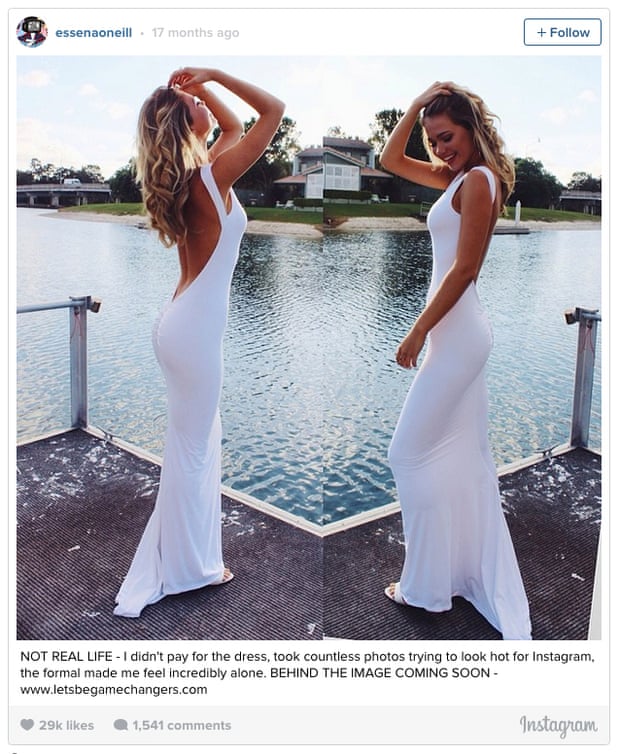| (cr: http://www.viraloptimized.com/) |
These days, bloggers and celebrities are highly influencial and companies look for them to influence the public. Back in March 2015, Singapore social marketing firm, Gushcloud, asked their bloggers to write negative comments about telecommunication companies M1 and Starhub's services to promote Singtel's mobile plan for students. I feel that this is ethically wrong as negative comments of the competitors were posted merely to promote Singtel. The bloggers' readers or supporter would actually believe that Singtel provides the best service and would most likely buy the phone from Singtel due to the influence.
On the other hand, it is also unfair for M1 and Starhub as they did nothing wrong. However, it is a relieve that Gushcloud and Singtel's actions were exposed when some of the bloggers apologised for posting the wrong information about M1 and Starhub.
(cr: theweemarketingagency)
Furthermore, Instagram star, Essena O'Neil quits social media claiming that they are all lies. The 18 year old Australian teenager with more than half of million followers on Instagram exposed the "dark truth" of social media. She revealed that she was paid to promote products and companies would tell her what to include in her post, and when to post it in a 17 minute video she uploaded on YouTube. She also mentioned that she hardly eats before shoots to look at her best in photos.
Below are edited posts from her Instagram:
Click to enlarge (cr: theguardian)
Honestly, I do not think O'Neill had to resort to 'quitting' social media because she could still use it to interact with her friends and family. Social media is just an online interaction tool and people control it. Zack James, a former YouTuber and social media CEO responded on Facebook saying "Essena O' Neill is wrong; Social Media isn't a lie." I agree with Zack James that social media is not a lie because it depends on the way we use it.
I think O'Neill did not mean that social media was lie, but she was referring to her posts on social media and how she can use social media to reach out to people to get to know about her "fake" life. However, Portraying a 'perfect life' is not right to me as in my opinion, it makes many girls to envy the 'perfect life' and they might have unrealistic dreams.
(cr: thedailymail)
I feel that social media marketing is an ethical issue as it:
- Unfair - Many of us refer to reviews online before purchasing a product these days as we may lack of product knowledge. For me, because of the lack in product knowledge, I would easily be convinced by the bloggers or celebrities who promotes the product. However, it is unfair because the reviewer was biased towards the product they were promoting.
- Frauds and Misleading information - A good example would be the Gushcloud x SingTel campaign which told their bloggers to complain and write false information about their competitors. It could also be when only the good information is shared to make the product seem perfect.
Lastly, I hope these bloggers and celebrities would give more honest reviews about products after these incidents.
Referencing
Institute of Business Ethics (2011) The Ethical Challenges of Social Media. [Online]
https://www.ibe.org.uk/userassets/briefings/ibe_briefing_22_the_ethical_challenges_of_social_media.pdf
Simon Kemp (2015) Digital, Social & Mobile in 2015. [Online]
http://wearesocial.sg/blog/2015/01/digital-social-mobile-2015/
Lim Yi Han (2015) Gushcloud bloggers apologise for negative Singtel marketing campaign. [Online]
http://www.straitstimes.com/singapore/gushcloud-bloggers-apologise-for-negative-singtel-marketing-campaign
Gaurav Agnihotri (2014) Ethics and Marketing: Is there a problem? [Online]
https://www.linkedin.com/pulse/20140617054600-79304306-ethics-and-marketing-is-it-possible
Emily James and Valerie Siebert (2015) 'Instagram isn't a lie; YOU were the lie' Social media CEO slams model who 'quit' photo-sharing app after claiming it was 'dishonest and contrived'. [Online]
http://www.dailymail.co.uk/femail/article-3304422/Instagram-isn-t-lie-lie-Social-media-CEO-slams-model-quit-photo-sharing-app-claiming-dishonest-contrived.html
Lifestyle Corespondent (2015) Life in a mess for this bombshell after quitting social media. [Online]
http://www.emirates247.com/entertainment/life-in-mess-for-this-bombshell-after-quitting-social-media-2015-11-08-1.609659
TheGuardian (2015) Essena O'Neill quits Instagram claiming social media 'is not real life' [Online]
http://www.theguardian.com/media/2015/nov/03/instagram-star-essena-oneill-quits-2d-life-to-reveal-true-story-behind-images


Hey Jamie!
ReplyDeleteWhile we all agree that social media has opened many new doors to allow marketers to reach their target audiences in a less expensive and faster way, we cannot neglect the immoral acts that some companies adopted to help achieve their goals.
Dishonesty in marketing efforts that you mentioned definitely cause the most harm to consumers. Take the SingTel and Gushcloud case for instance, getting influencers to deceive consumers into thinking that their service is better than other telecommunication companies is really horrible!
I think friendly competition and an occasional witty joke is nothing wrong but hiring people to actually denounce a company is completely unethical in my eyes. Fake reviews are not good for anyone other than SingTel who just sits back and collect fraudulent profits. They are not good for consumers and they are not good for honest companies who fall victim to their shady competitors.
It’s important for companies as well as consumers to educate themselves about ethics and social media usage. Any idea how they can go about doing so?
Thanks for the interesting read! Hope to hear from you soon.
Regards,
Vanna
Hi Jamie,
ReplyDeleteI like your approach on how you explained the ethical issues of social media. Simple and systematic. I agree with you that social media marketing has ethical issues related to it.
The sad truth is that's how the world is right now isn't it? For companies to survive, they may resort to unethical ways to crush their competitors. One of these ways is through defamation on social media.
I would like to cite an example of John Mackey, CEO of Whole Foods Market who posted disparaging comments about a competitor his company was going to buy over. He was hoping to reduce the purchasing price as much as possible.
Cases like this raise the question: How can companies defend themselves from such “fake” negative reviews and protect its reputation given that it is so easy to post online using another identity that somebody created?
Thank you for your post and hope to hear from you soon!
-Kai
References:
https://books.google.com.sg/books?id=CpueBwAAQBAJ&pg=PA460&lpg=PA460&dq=companies+using+social+media+to+defame+competitors+ethical+question&source=bl&ots=DpbmECpZGe&sig=4_znzry8ectErV6_tVZsEmJk774&hl=en&sa=X&ved=0CBsQ6AEwAGoVChMI6pPk68yFyQIVlQeOCh0jIQGY#v=onepage&q=companies%20using%20social%20media%20to%20defame%20competitors%20ethical%20question&f=false
Using Rotate 4 All's paid to promote network, you can earn dollars just by promoting your PTP URL or by surfing other links.
ReplyDeleteI really thank you for the valuable info on this great subject and look forward to more great posts. Thanks a lot for enjoying this beauty article with me. I am appreciating it very much! Looking forward to another great article. Good luck to the author! All the best!
ReplyDeletePremium domains
i was just browsing along and came upon your blog. just wanted to say good blog and this article really helped me. talk to stranger online chat
ReplyDelete